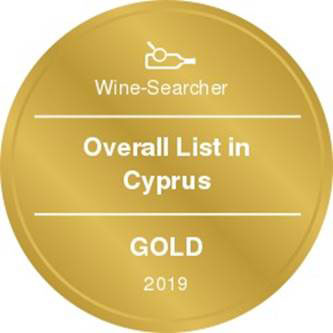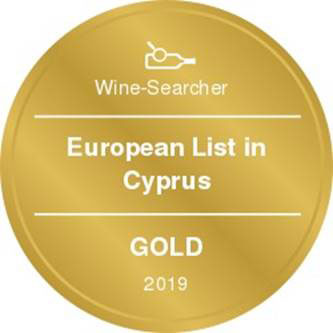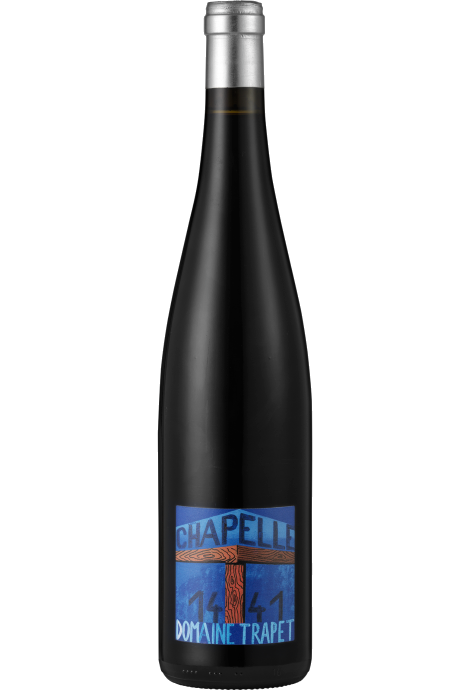TRAPET CHAPELLE 1441 PINOT NOIR 2021
Country: France, Alsace
Grape Varieties: Pinot Noir 100%
Grape Varieties: Pinot Noir 100%
100% Pinot Noir from vines cultivated biodynamically by Andrée Trapet, who looks after the plots in Alsace. It is made from a selection of fine Pinot Noir planted in the Froehn Grand Cru (in the commune of Zellenberg), and from the estate’s best plots in the commune of Riquewihr. The vinification is natural and without additives, with a long maceration, maturation without intervention, and zero added sulphur.
Tasting Notes: A profound nose with mineral notes, aromas of blackcurrant and blackberries, and hints of smoke. Delicate and vibrant, with melted tannins, this is an eminently drinkable wine. 1441 is the year of the consecration of the Saint Erhard chapel, built on the ramparts of the town of Riquewihr.
Food Pairing: Pair well with chicken and turkey
DOMAINE TRAPET
Andrée and Jean Louis Trapet of Gevrey Chambertin renown, took over Andrée’s parents vineyards in Alsace in 2002, inheriting generations of knowledge of the terroir and the style of wines. An only daughter with a profound affection for her local soil, she converted the domaine to biodynamic methods, adopting the same disciplines as they exercise in Burgundy. The estate comprises some of the best Grand crus vineyards in Alsace and the wines, like their Burgundy relatives, are all about finesse and elegance. They are characterised by an almost electric purity and minerality and are superbly versatile with challenging dishes.
Tasting Notes: A profound nose with mineral notes, aromas of blackcurrant and blackberries, and hints of smoke. Delicate and vibrant, with melted tannins, this is an eminently drinkable wine. 1441 is the year of the consecration of the Saint Erhard chapel, built on the ramparts of the town of Riquewihr.
Food Pairing: Pair well with chicken and turkey
DOMAINE TRAPET
Andrée and Jean Louis Trapet of Gevrey Chambertin renown, took over Andrée’s parents vineyards in Alsace in 2002, inheriting generations of knowledge of the terroir and the style of wines. An only daughter with a profound affection for her local soil, she converted the domaine to biodynamic methods, adopting the same disciplines as they exercise in Burgundy. The estate comprises some of the best Grand crus vineyards in Alsace and the wines, like their Burgundy relatives, are all about finesse and elegance. They are characterised by an almost electric purity and minerality and are superbly versatile with challenging dishes.
Product Id: 0426

For orders €100,00 and above we deliver free to your place
For orders below €100,00 delivery charge €10,00 within city limits
For orders below €100,00 delivery charge €10,00 within city limits

Pinot Noir
Pinot Noir is probably the most frustrating, and at times infuriating, wine grape in the world. However when it is successful, it can produce some of the most sublime wines known to man. This thin-skinned grape which grows in small, tight bunches performs well on well-drained, deepish limestone based subsoils as are found on Burgundy`s Côte d`Or.
Pinot Noir is more susceptible than other varieties to over cropping - concentration and varietal character disappear rapidly if yields are excessive and yields as little as 25hl/ha are the norm for some climates of the Côte d`Or.
Because of the thinness of the skins, Pinot Noir wines are lighter in colour, body and tannins. However the best wines have grip, complexity and an intensity of fruit seldom found in wine from other grapes. Young Pinot Noir can smell almost sweet, redolent with freshly crushed raspberries, cherries and redcurrants. When mature, the best wines develop a sensuous, silky mouth feel with the fruit flavours deepening and gamey "sous-bois" nuances emerging.
The best examples are still found in Burgundy, although Pinot Noir`s key role in Champagne should not be forgotten. It is grown throughout the world with notable success in the Carneros and Russian River Valley districts of California, and the Martinborough and Central Otago regions of New Zealand.
Pinot Noir is more susceptible than other varieties to over cropping - concentration and varietal character disappear rapidly if yields are excessive and yields as little as 25hl/ha are the norm for some climates of the Côte d`Or.
Because of the thinness of the skins, Pinot Noir wines are lighter in colour, body and tannins. However the best wines have grip, complexity and an intensity of fruit seldom found in wine from other grapes. Young Pinot Noir can smell almost sweet, redolent with freshly crushed raspberries, cherries and redcurrants. When mature, the best wines develop a sensuous, silky mouth feel with the fruit flavours deepening and gamey "sous-bois" nuances emerging.
The best examples are still found in Burgundy, although Pinot Noir`s key role in Champagne should not be forgotten. It is grown throughout the world with notable success in the Carneros and Russian River Valley districts of California, and the Martinborough and Central Otago regions of New Zealand.
 +357 25 76 06 08
+357 25 76 06 08














